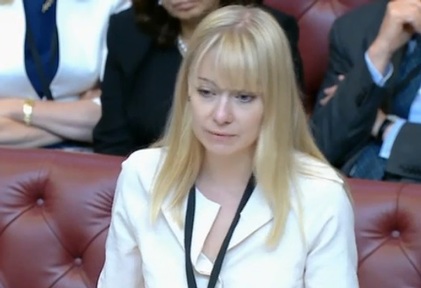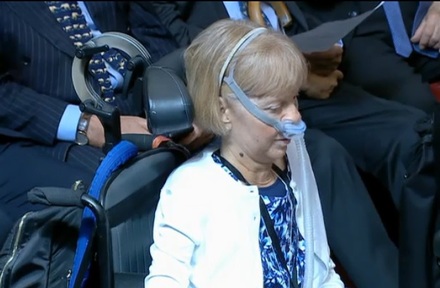Free personal care like Scotland? Minister says people in England must 'expect to contribute to care'
People may need help washing, dressing or going to the toilet, but unlike in Scotland (where such personal care is free), people needing support in England should continue to “expect to contribute to their care”, a minister has said.

Free personal care in green paper?
A question from a Labour peer in the House of Lords, on whether the case for free personal care in England will be addressed in the long-awaited social care green paper, has prompted a minister to say that people south of the Scottish border should still expect to make a financial contribution to their care.
Baroness Blackwood of North Oxford, the Conservative parliamentary under secretary for health and social care, told peers: “The green paper will bring forward ideas for including an element of risk pooling, helping to protect people from high and unpredictable costs.
"This government is committed to ensuring that everyone has access to the care and support that they need and we are clear that people should continue to expect to contribute to their care.”
Age UK has revealed nearly 1.3 million have developed an unmet need for basic care support like washing, dressing or going to the toilet.
Free personal care was introduced in Scotland more than a decade ago. The IPPR's report ‘Social care: Free at the point of need – the case for free personal care in England’ (published in May), has recommended introducing free personal care south of the border for people aged over 65.
Labour peer: Don’t repeat government’s stock answer on ‘extra funding’
Baroness Wheeler, Labour’s shadow spokesperson for health and social care, said the IPPR report shows free personal care would more than double the number of older people with access to state-funded care and save billions of pounds in hospital costs. “Surely it’s one of the key options for solving the current care crisis?”

“I hope she just won’t repeat the government’s stock answer on so-called ‘extra funding’.”
Referring to the green paper, she asked the minister: “When’s it going to be published? What’s holding it up?”
Baroness Blackwood replied: “The green paper must be a priority and it is going to set out our sustainable plans for reform and we have really welcomed the contributions that have been made by a number of recent reforms.”
The minister said the IPPR, the joint select committees, The Health Foundation, The King’s Fund and The Resolution Foundation had “made some important proposals which are being considered as part of the green paper’s work that is going forward.
“She’s right that we can’t wait for that because there are people who need improvements in care now and that’s part of what the Better Care Fund has been set up in order to do.”
The minister said the Better Care Fund, introduced in 2015 "really has brought changes across the system.”
‘Unfair' and 'counterproductive’
Despite the minister's reassurances, disabled peer Baroness Campbell of Surbiton, who has spent decades battling a degenerative illness, told fellow peers: “Research carried out by the Independent Living Strategy Group, for which I chair, concluded very recently that charging for the support disabled people need to go about their daily lives is unfair, counterproductive and undermines the primary purpose of the Care Act."
Age UK estimates that over a million older people have died in the past two years either waiting for a care package or being turned down.
The IPPR report argues free personal care in England would require an increase in social care spending from £17 billion a year to £36 billion by 2030 – equivalent to seven per cent of NHS spending.
Latest News
 29-Jul-24
Dementia Bus gives carehome.co.uk staff insight into life with dementia
29-Jul-24
Dementia Bus gives carehome.co.uk staff insight into life with dementia
 01-Mar-24
Find out the top care homes in 2024
01-Mar-24
Find out the top care homes in 2024
 21-Mar-23
UK's top care homes in 2023 revealed
21-Mar-23
UK's top care homes in 2023 revealed
 03-Jan-23
carehome.co.uk launches free care helpline
03-Jan-23
carehome.co.uk launches free care helpline
 13-Dec-22
5 mins with Emily Whitehurst, chief operating officer for Constantia Healthcare
13-Dec-22
5 mins with Emily Whitehurst, chief operating officer for Constantia Healthcare